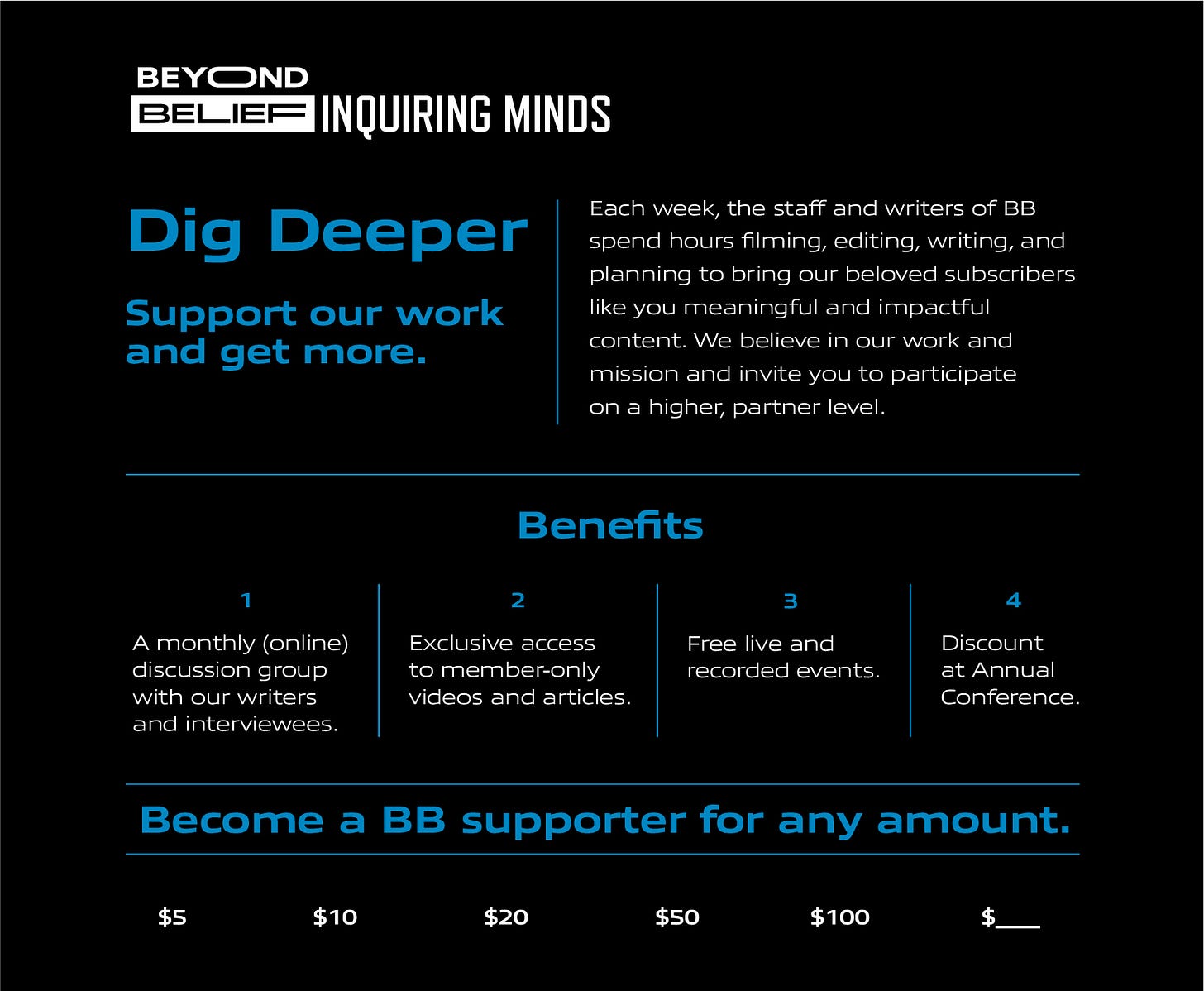Transcript
Hi folks, and welcome to episode 51 of The Secret Chord. Something a little bit different today. We are going to explore the music of the great Sufjan Stevens, who was born on July 1st, 1975 in Detroit. He is a singer-songwriter and a talented multi-instrumentalist. By the way, the name is apparently a Persian word that means “he who walks fast.” Not sure what to do with that, but that's what I heard.
He earned a master's degree in writing from the New School in New York, and from that developed what I would call a fixation with epic concepts, which resulted in two very cool concept albums about states—one about Michigan and the other about Illinois. Also a collection of sacred and biblical songs, which of course we're going to deal with here, an electronic album for the animals of the Chinese Zodiac called Enjoy Your Rabbits, and a programmatic tone poem for the Brooklyn Queen's Expressway entitled BQE.
So all that's fairly original, I would say. Sufyan's style is a bit hard to pin down, but it's most generally been associated with genres such as indie folk, alternative rock, indie rock, indie pop, baroque pop chamber, pop-folk pop avant-garde folk, lo-fi folk, and electronica. He's known for his frequent use of the banjo, but he also plays guitar, piano, drums, woodwinds, and several other instruments on his records layered through the magic of multi-track recording.
Sufyan's music is extremely reflective, highly original and personal, and unusually spiritual for a popular artist. In this episode, we'll be accompanying him musically and spiritually through a journey he's been on for some time, which has taken an unexpected (perhaps) turn recently, though it hasn't compromised his artistry in any way. He is a deep and fascinating musician and person, and I hope you'll enjoy his work as much as I do.
As we mentioned, Sufyan recorded an album of sacred songs called Seven Swans. It contains all kinds of references to biblical passages and transcendent ideas. Actually, it's a wonder to me and a credit to his talent that it even got made. The song I'd like to start off with today is (astoundingly to me) based off of a verse in the book of Isaiah. Let's hear that now. This is All the Trees of the Field Will Clap Hands by the great Sufyan Stevens.
I think that's a beautiful tune. It's a simple meditative type of folk song with a certain minimalist feel to it as well. As far as I can tell, it only features banjo, piano, light, drums, and vocals (to my ears). The piano and one of the voices seem to be hitting microtones to be purposely out of tune, which is a highly unusual choice, and I could only speculate as to why, but it does give it a unique sound. Perhaps that’s Sufyan's take on what it would sound like if the mountains and the hills broke into song, which is the subject of that verse in Isaiah 55 where it says “You will go out in joy and be led forth in peace. The mountains and the hills will burst into song before you and all the trees of the field will clap their hands.”
Part of what makes his writing great is his ability to reference things obliquely. He doesn't quote the verse directly or come out and explain it in any overt way. It's there, but run through a very artistic filter. This is also what has sharply distinguished him from other performers who have been placed in a religious category as he sometimes has been. He's making art and he’s often related to that art as transcendent—as striving to accomplish the religious ideal. But instead of dealing directly with religious or biblical matters, Sufyan's music embodies what theologian Francis Schaeffer called “the totality of life as opposed to some sort of self-conscious evangelism.”
He sings:
And I heard from the trees a great parade, and I heard from the hills a band was made and will I be invited to the sound and will I be part of what you've made? And I'm preparing every part for you.
So who was Isaiah? He was a sage who lived in Judea 2,600 years ago. There are two central themes in his book. One chastises the people for their general behavior and especially the insincerity of their worship and the lip service that they tend to pay God. Unlike what most people believe, the main job of a prophet is not to predict the future, which he also does, but rather to exhort people to be better. He does warn of dire consequences if they collectively fail to pull it together. But even while doing that, he always leaves room for a hope that in the end things will be well, good will triumph over evil and humanity will end its troubled history in joy.
So somewhere along the line, something went wrong for Sufyan. For some reason, the optimistic celebratory content of his music changed. It became darker and took on a tone of sad and somewhat angry resignation. Gone are Isaiah's singing trees and in its place were songs with titles like Ativan, Lamentations, and Death Star. Writer Max Russ reflected that:
With each Sufi Stevens release, one can expect a few given qualities, deeply personal songwriting, flawless production, and highly conceptual experimentation. Stevens has continuously illustrated that he has experienced quite a bit of suffering throughout his life, yet because he is in touch with his pain, there is a kind of warmth that accompanies it. His album-long reflection on Michigan was worthy of Ernest Hemingway, finding equal measures of beauty and tenderness in our state's natural splendor and the human toll of its shattered industrial economy. But what would attribute to Stevens' adopted home of New York now ravaged by coronavirus look like today? And so on The Ascension, his newly released eighth album, Stevens tells a different American story altogether, one of disillusionment eroded hopes and most poignantly shaken faith.
Let's listen to that now. This is The Ascension by the great Sufyan Stevens.
Oh man, do I love that song. By the way, it seems to me that The Ascension is an interesting name for an album about shaken faith. Maybe this is an example of the Kabbalistic concept of going down for the sake of going up or taking one step back to take two steps forward. I don't claim to know, but I'd love to ask him about it. So Sufyan, if you happen to ever hear this, please feel free to reach out. I'd love to talk to you!
He sings there:
And to everything, there is no meaning. A season of pain and hopelessness. I shouldn't have looked for revelation. I should have resigned myself to this. I thought I could change the world around me. I thought I could change the world for best. I thought I was called in convocation. I thought I was sanctified and blessed.
So that's pretty heavy. Sufyan himself said:
Experience makes fools of all of us. In experiencing so much and growing older, I've realized there was definitely a naïveté to my former self. There was a hopefulness joyfulness and a playfulness to a lot of those early records that's been slowly receding over the years. It's hard for me to speak for it because it happens so gradually like watching a tree grow. But you start to lose faith in the structures of society as you get older, and I think that's coming to the surface.
Now, I'd humbly like to suggest that Sufyan is making a mistake. I don't know what he means by the structures of society, but when has it ever been different? Isaiah was railing against those faulty structures 26 centuries ago, and yet he didn't lose faith. Perhaps it's because he knew a secret. There's a verse in his book, chapter 45, where it says, “I form light and create darkness.” God says, notice two things, that the light is already there. God needs to create the darkness which has no intrinsic existence of its own.
Note also that God does it all. There is no good force and bad force pulling and pushing the world this way in that it all comes from the same place. The critical implication of this is that darkness or the bad only appears to be bad, but in truth is in its own way helping to bring about the good as well. Yes, this is a huge topic, one that can't adequately be dealt with here, so let it be food for thought for the time being.
Writer Ann Lamont reflected on this reality as well when she said that:
All truth is paradox. Life is a precious unfathomably beautiful gift and it is impossible. Here On the incarnational side of things has been a very bad match for those of us who were born extremely sensitive. It is so hard and weird that we wonder if we are being punked and it is filled with heartbreaking, sweetness and beauty, floods and babies and acne and Mozart all swirls together.
So true.
Isaiah was unprecedented in his time, in a world of relentless warfare, blood sports, and general barbarousness, in predicting a happy end for humanity. His words which are carved in a monument across from the UN called the Isaiah Wall, have inspired generations with hope that the grip of evil on the course of human events will one day vanish. Famously he wrote, “And they shall beat their swords into plowshares and their spears into pruning hooks. Nation shall not take up sword against nation. They shall never again know war.”
No, we are obviously not there yet. And yes, there is a tremendous amount of ground to cover, but that need not be reason to despair. Maybe all those years ago, Isaiah knew something and shared it with us to keep a small fire burning inside all those who truly crave the good, who believe deep down in the higher angels of humanity.
So to conclude, on a high note, let's go back to the Seven Swan's album and hear Sufyan's vision, inspired again by Isaiah, for the ultimate angelic end of humanity. This is We Won't Need Legs to Stand by the great Sufyan Stevens.
I think you'll agree, another beautiful tune written in Waltz's time with a bit of a Spanish tinge to it and a haunting organ part on top of it with his usual soft and poignant voice floating above it all. He sings:
When we are dead, we all have wings. We won't need legs to stand, and when we receive to see a change at last.
Will we come to see change at last? The change that the spiritually sensitive and the optimistic so long to see when we all decide to beat our swords into plowshares? That remains to be seen. But given the choice between the path of pain and hopelessness and the one of yes pain and hope, which one is better? That's for everyone to decide on their own, but my money is on Isaiah.













